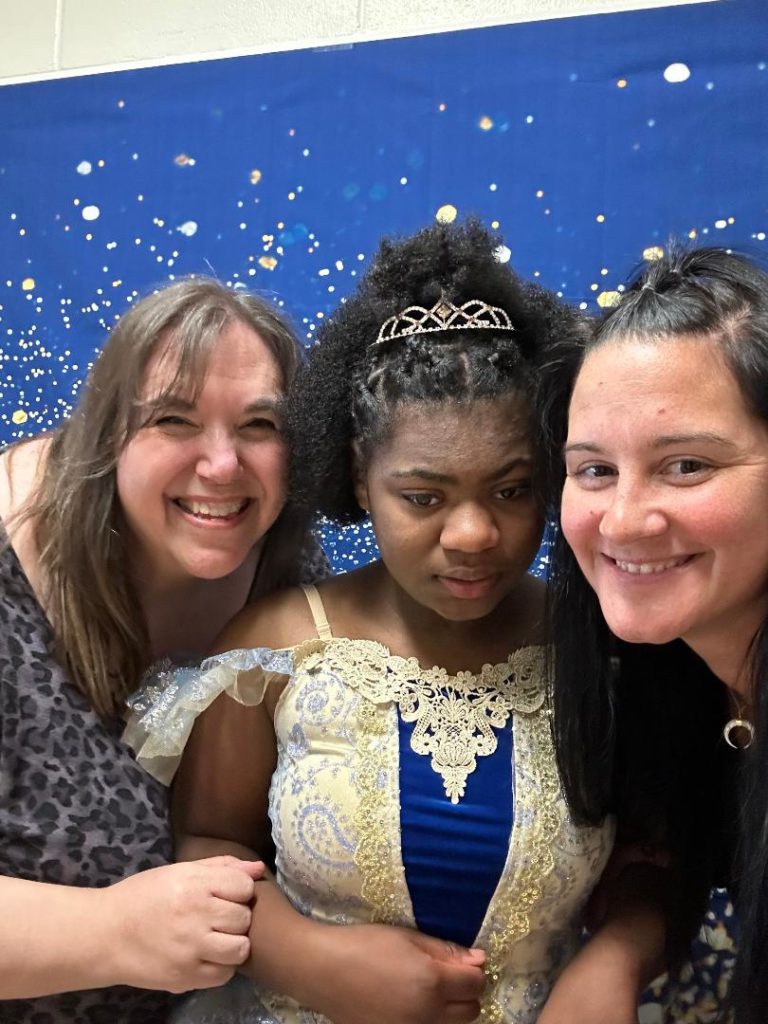
Twelve-year-old Abi Insley is a testament to resilience.
The girl overcame a violent home and has emerged as what’s been called a “miracle child.” Declared brain dead twice during her infancy, Abi is now getting home-care services that have played a pivotal role in her development.
Her adoptive mother, Sicklerville resident Dana Insley, has shared their journey, recalling her decision to adopt Abi at 2 and a half despite her complex medical challenges, which include life-threatening seizures. She brought the girl into her home from a long-term care facility, where a lack of support eventually prompted the family to rely on nursing assistance.
“To foster and then adopt Abi was certainly a series of many decisions and forcing DYFS (the state’s Division of Youth and Family Services) to fulfill their promises to us, such as an accessible ramp and nursing care, both of which were a fight to get,” Dana recalled of her daughter, who has a twin named Madelyn also adopted by the Insleys.
“Once we felt that they fulfilled their obligations, we moved forward with the adoption,” she added. “I seriously don’t believe we knew what we were taking on, and we were definitely in uncharted waters by all accounts. We knew that Abi was meant to be ours and we knew we wanted to get her out of that horrible institution and home with her twin.”
Abi and Madelyn share a close bond that proved instrumental in their development, Dana shared, mentioning the importance of keeping the twins together, despite Abi being deemed “unplaceable” due to medical issues.
“As twins, they have always had a close bond,” Dana revealed. “We would never had known about Abi if she wasn’t a twin, and I fear far too many kids are abandoned to institutional care because their issues make them unplaceable. “
Despite Abi’s complex health needs, she has made significant progress over the years, Dana says. She credits the Hollydell School in Washington Township and Nemours Children’s Health for helping a once non-verbal and tube-fed child thrive.
But the Insley family has also been challenged by the constant supervision needed for a sick child and its profound effect on family life. It’s why Dana emphasizes the crucial role of home-care nurses.
“When Abi came to us she was 2 and a half and couldn’t roll over, talk, eat … she just kind of laid around all day and got tube fed,” Dana recounted. “I got her into extensive therapy and we started advancing her food intake slowly. We realized quickly that there was a huge personality trapped inside that little lump, and the more challenges we set before her, the more advancements she made.”
Dana wants to address the challenges in securing proper nursing help, stressing the need for fair compensation for nurses caring for medically fragile children. Abi’s seizure disorder adds to the complexity of care, and Dana has called for legislative relief, including urging legislators to redirect institutional funds to private-duty nursing (PDN) and making Medicare reimbursement rates more competitive.
But Dana remains committed to shining a light on Abi’s journey, if nothing else to demonstrate the resilience of the human spirit and the ongoing need to enhance quality of life for medically complex children and their families.









